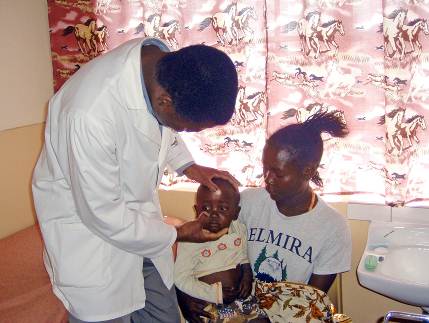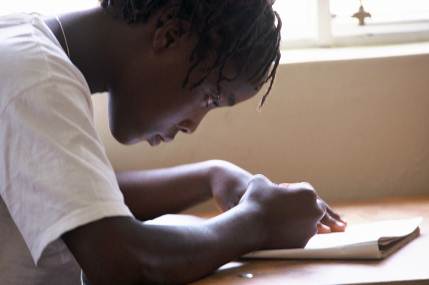Living in the shadows of insufficient social infrastructure

Lubango is located in the foothills of a small mountain range at an altitude of approximate 1,700 metres. Almost three decades of civil war have taken their toll on the region, but following the peace agreement in 2002, Lubango has experienced economic progress like most parts of Angola.The social infrastructure, however, has not recovered, and many children and families do not have access to school and medical treatment. Furthermore, the fruits of the country’s economic boom are very unevenly distributed, and the majority of the population has hardly benefited.
The authorities in Lubango are currently working to build and create health and education facilities, but many children and families continue to rely on development aid.
Thousands of children in the region have lost parental care due to the civil war, and it has been difficult to find new homes for many of them. Orphaned children would typically be taken in by relatives, but many families struggle to feed their own children and are in no position to take responsibility for additional members. This has resulted in many child-led households where siblings without care struggle for daily survival. The war and health issues such as HIV / AIDS have also brought a rise in families led by a single parent. These households are often deeply poor and extremely vulnerable since social infrastructure remains inadequate. The lack of access to medical services is devastating for many families. The staggeringly high mortality rates of children under-five and women who die in childbirth are a bleak reflection of the scarcity of health care.
From emergency relief to sustainable family strengthening
An important part of SOS Children's Villages work has always been to reach out and support vulnerable families in Lubango. In 1994, we started emergency relief programmes in Lubango that provided food, vaccinations and basic schooling for some of the many Angolans who were affected by the civil war. Following the peace agreement, these emergency activities have been converted into programmes that seek to strengthen and empower vulnerable families. In many cases, the best way to support vulnerable children is to help the parents or carers to acquire skills that will enable the families to stay together and create the kind of caring and safe environment that all children deserve to grow up in.
What we do in Lubango

Our work in Lubango includes a wide range of initiatives dedicated to reaching vulnerable families, as well as giving children without care a home where they can grow up in a loving environment. Through our social centre, we support families in their acquisition of skills which enable them to become self-sufficient and sometimes we give them subsidies or loans. Our vocational centre is specialised in agricultural training, and we also provide a piece of land where families can grow vegetables for themselves or to sell at the market.
Children with no one to care for them can find a home in one of the 13 SOS families, where they live as a family together with other children and their loving SOS mother. All children and young people in the care of SOS Children’s Villages have access to school or vocational training. A development plan is carefully arranged together with and for each child. As the children grow older they move into the SOS Youth Programmes, where they learn to become independent in a safe and supervised environment while typically maintaining close contact with their SOS families
SOS Children’s Villages also runs a kindergarten and a primary school for the benefit of local children as well as those from SOS families. Through access to education, the children will have a chance of better prospects for the future for themselves as well as their families. Furthermore, parents can attend their daily work knowing that their children are well-cared for by professional staff.
The SOS Medical Centre works together with local authorities in an effort to treat and prevent the many diseases that continue to be part of everyday life in Lubango. Children are vaccinated against polio, and persistent campaigns are undertaken to inform the local community about how to prevent the spread of HIV/AIDS as well as how to protect oneself from malaria and diseases caused by bad sanitation.